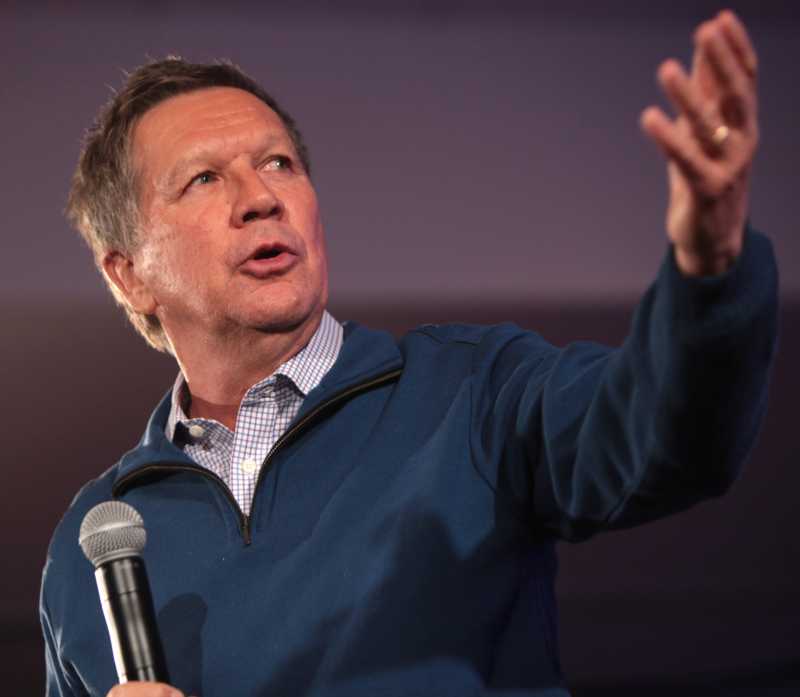
DETROIT, Mich. — Republican presidential candidate John Kasich seemed to backtrack on Thursday night on his assertion that some businesses are refusing to sell cupcakes to persons who identify as homosexual, stating during the Republican debate in Detroit that having to participate in an event is a “whole other issue.”
As previously reported, during an event last month at the Miller Center of Public Affairs at the University of Virginia, the Ohio governor said that he doesn’t believe businesses have the same protections as churches, and that business owners should just “move on” in regard to homosexuality.
“I think frankly, our churches should not be forced to do anything that’s not consistent with them. But if you’re a cupcake maker and somebody wants a cupcake, make them a cupcake,” he stated. “Let’s not have a big lawsuit or argument over all this stuff. Move on. The next thing, you know, they might be saying if you’re divorced you shouldn’t get a cupcake.”
At last week’s Republican presidential debate in Houston, co-moderator Hugh Hewitt asked Kasich about his “cupcake” statement and inquired if he could be trusted to protect religious liberty if elected. Kasich reiterated his sentiments and assertions.
“If you’re in the business of selling things, if you’re not going to sell to somebody you don’t agree with, okay, today I’m not going to sell someone who’s gay, and tomorrow maybe I won’t sell to somebody who’s divorced,” he said. “If you’re in the business of commerce, conduct commerce.”
But some said that Kasich’s remarks either suggested that businesses couldn’t turn down certain events, and others stated that Kasich was making false assertions as no businesses are declining to serve homosexuals—that current legal battles are over personal participation in an event, not providing general service.
During Thursday’s Republican presidential debate, co-moderator Bret Baier told Kasich that his remarks were causing concern. Kasich then noted that there is a distinction between providing service to an entire group of people, and declining to be involved with an event.
“[L]ook, you’re in the commerce business, you want to sell somebody a cupcake, great. Okay?” he said. “But now if they ask you to participate in something you really don’t like, that’s a whole other issue. Okay? Another issue.”
Kasich cited the example of a photographer being asked to go to the event and take pictures, which would be considered a form of personal participation.
“What I hoped was going to happen after the Supreme Court ruling was things would settle down,” he said. “If you go to a photographer to take pictures at your wedding and he says, ‘I’d rather not do it,’ find another photographer. Don’t sue them in court.”
Kasich suggested that laws might need to be crafted to protect those who decline to participate, but said he would prefer that the issue not have to come to that point.
“At the end of the day, if somebody’s being pressured to participate in something that is against their deeply held religious beliefs, then we’re going to have to think about dealing with a law,” he outlined. “But you know what? I’d rather people figure this out without having to put another law on the books and have more arguments in this country. Why don’t we come together as a country, respect one another, love one another and lift this country?”
All of the current legal battles over the issue involve businesses who have stated that they serve homosexuals regularly, but had to either pass on communicating a certain message or decline association with/involvement in a particular event.
Become a Christian News Network Supporter...


